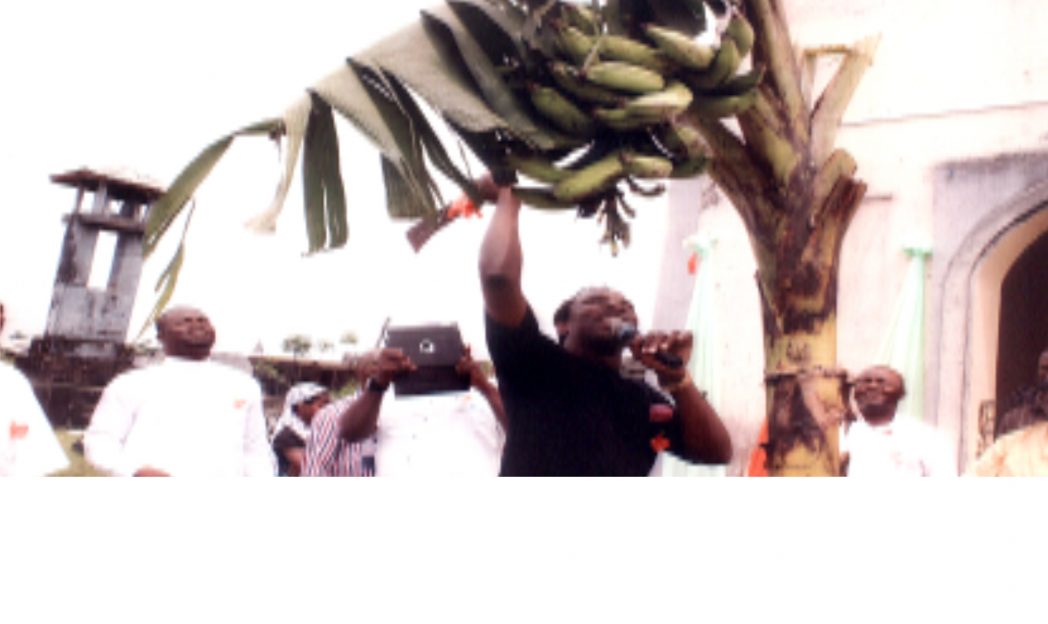Agriculture
‘Oil Price Fall Can Aid Exports’
It has been observed
that the current devaluation of the naira can favour the agricultural sector especially in terms of export opportunities.
The observation was made recently in Lagos State by Novus Agro, a private company that uses technology to provide market access to farmers.
Making the observation, Novus Agro’s Strategy Manager, Obiajuru Luya, noted that agriculture has remained resilient in spite of the oil price slide and recent devaluation of the naira.
He said prices of most staples have been stable in spite of instability in other sectors such as drop in oil prices (devaluation of the naira, insurgency amongst others.
She said this was largely due to increase in domestic production of commodities even as she added that more youths and people in general are becoming interested in running agricultural businesses largely due to government’s evangelism on the obvious potentials inherent in the sector.
Explaining that agriculture is no longer about hoes and cutlasses but about mechanised farming, fueled with relevant data, statistics and technology. Luya pointed out that mobile technology was what aided the transparency and dynamics of fertilizer distribution in the Growth Enhancement Support (GES) scheme, initiative of the federal government.
“The relevance of mobile technology in a sector like ours cannot be over-emphasised, that has been the backbone of our business over the years in terms of transfer of real time information, identifying and reaching farmers, our enumeration, trade facilitation and indeed all aspects of our business”, she said.
According to her, more people see the relevance of price data and the need to get insights from it to function effectively at different levels and in different value chains from production to processing of end user products, planning and budgetary committees are not left out.

Member, Rivers State House of Assembly and House of Representative aspirant for Degema/Bonny Federal Constituency, Hon Aye Atamah Pepple, representing Rivers State Governor, Rt. Hon. Chibuke Amaechi (middle) harvesting plantain during St. Andrew’s Anglican Church Bakana 2014 Adult Harvest Thanksgiving Service. Photo: Egberi A. Sampson
Agriculture
FG, Ogun Distribute Inputs To 2,400 Farmers
Federal Government and the Ogun State Government, on Wednesday, distributed farm inputs to farmers as part of effort to address food security challenge.
The State Director, Federal Ministry of Agriculture and Food Security, Dr. Toyin Ayo-Ajayi, during the flag-off ceremony of Inputs Redemption Under The National Agricultural Growth Scheme-Agro Pocket (NAGS-AP), in Ogun State, disclosed that beneficiaries of the gesture were primarily rice, maize and cassava farmers across the State.
Ayo-Ajayi commended the Ogun State Government for partnering with the government at the centre for the effort in supporting farmers with inputs that would bring about yieldings for local consumption and likely exportation.
She noted that government is supporting rice, cassava and maize farmers with inputs worth N212,000; N189,000 and N186,000 respectively.
The Permanent Secretary in the State Ministry of Agriculture, Mrs Kehinde Jokotoye, who represented the Commissioner in the Ministry, Bolu Owotomo, stated that traditional farmers are critical in food production, hence the need to encourage and support them with inputs that would bring about desired results during harvesting.
Owotomo said: “Let us make good use of this opportunity, so that the success of this phase will make farmers benefit more from the state and federal governments of Nigeria.”
Earlier, State Coordinator, Federal Ministry of Agriculture and Food Security, Dr. Oluwatoyin Ayo-Ajayi, appreciated the present administration for partnering with the federal government for the initiative, adding that the programme is designed to support farmers at the grassroots level in cassava, rice and maize with inputs such as, seeds, pesticides, herbicides and fertilizers, to boost their production and enhance their livelihood.
Agriculture
Niger Allocates 10,000 Hectares For Smallholder Farmers
The Niger State Government has mapped out 10,000 hectares of farmland in Gbapo Community of Katcha Local Government Area of the State for smallholder farmers to benefit from the state government’s agricultural intervention programme.
Two thousand out of the 10,000 holders of the farmlands have already received inputs.
At a flag-off ceremony in Yinti Village, the facilitator of the programme, Shinkafan Nupe, Malam Idris Usman Makanta, assured the farmers of increased distributions to the mapped-out ten thousand (10,000) farmlands if farmers respond positively.
He explained that the commencement of the two thousand is to measure the positive response of farmers before obtaining full-scale support.
Malam Makanta stated that this initiative aligns with the farmers’ initial commitment through Niger Foods, whose mission is primarily geared towards establishing efficient and profitable agricultural businesses to support the present administration of Governor Mohammed Umaru Bago’s quest to boost agricultural productivity in the state.
He also commended Niger Foods for their steadfastness and resilience in the effective implementation of the input financing scheme.
Makanta reiterated the commitment of the State Governor in making judicious use of the arable land in the state.
Shinkafan Nupe, therefore, urged the farmers to support the Governor by using the inputs wisely so that the dream can be actualised.
Agriculture
GO-CARES: Gombe Empowers 573,429 Farmers, Entrepreneurs
The Gombe State Government has empowered a total of 573,429 farmers and entrepreneurs under the 4th phase of the GO-CARES programme.
The programme was officially flagged off by Governor Inuwa Yahaya in another major step towards alleviating poverty and supporting the state’s vulnerable populations.
The Governor, while inaugurating the disbursement in Akko Community of Akko Local Government Area, restated his administration’s commitment to the welfare of vulnerable citizens in the state.
He was represented by the Commissioner for Budget and Economic Planning, Salihu Baba Alkali, who is also the Chairman of the Steering Committee on GO- CARES implementation.
“The 4th phase of GO-CARES will directly and indirectly impact a total of 573,429 citizens across the state. Of these, 152,429 individuals will benefit directly through cash transfers, livelihood grants, agricultural inputs, and operational grants to small businesses”, he stated.
The Governor added that, “421,000 people will be indirect beneficiaries through infrastructural projects such as classroom blocks, healthcare facilities, WASH services, and rural infrastructure projects like culverts and drainages”.
Yahaya, reaffirmed his commitment to ensuring that the state’s most vulnerable citizens are not left behind in the state’s development.
According to him, “Earlier this year, on June 25, 2024, we flagged off the distribution of improved seedlings, fertilizers, and herbicides to less privileged farmers in Malam Sidi, Kwami Local Government Area, signaling the commencement of the 4th phase implementation of GO-CARES under Result Area 2”.
The Governor reiterated that these initiatives have had a significant impact on the livelihoods of beneficiaries and the overall agricultural sector.
He explained that, “Today’s ceremony marked the simultaneous launch of activities under all three GO-CARES Result Areas for the 4th phase. These areas include: State Cash Transfer Grants: 2,500 direct beneficiaries; Labour Intensive Public Works: 2,700 direct beneficiaries; Livelihood Grants: 10,000 direct beneficiaries; and Basic Services: 405,000 indirect beneficiaries”.
-

 Sports4 days ago
Sports4 days agoEaglets Not In CAF’s U-17 AFCON Plans
-

 News4 days ago
News4 days agoPoliceman Commits Suicide In Niger
-
News23 mins ago
FG Orders State MDAs To Close Accounts In Commercial Banks
-

 Politics4 days ago
Politics4 days agoPrioritise Citizens’ Wellbeing To Avoid Dire Consequences, Don Warns Political Elite
-
Maritime4 days ago
Navy Seizes 265 Bags Of Cannabis
-

 Maritime4 days ago
Maritime4 days agoNigerian Customs Personnel And Smuggling Curtailment
-

 Business4 days ago
Business4 days agoBayelsa Begins EIA On 60MW Power Plant
-

 Rivers4 days ago
Rivers4 days agoOgonis Endorse Dialogue On Oil Extraction Resumption

